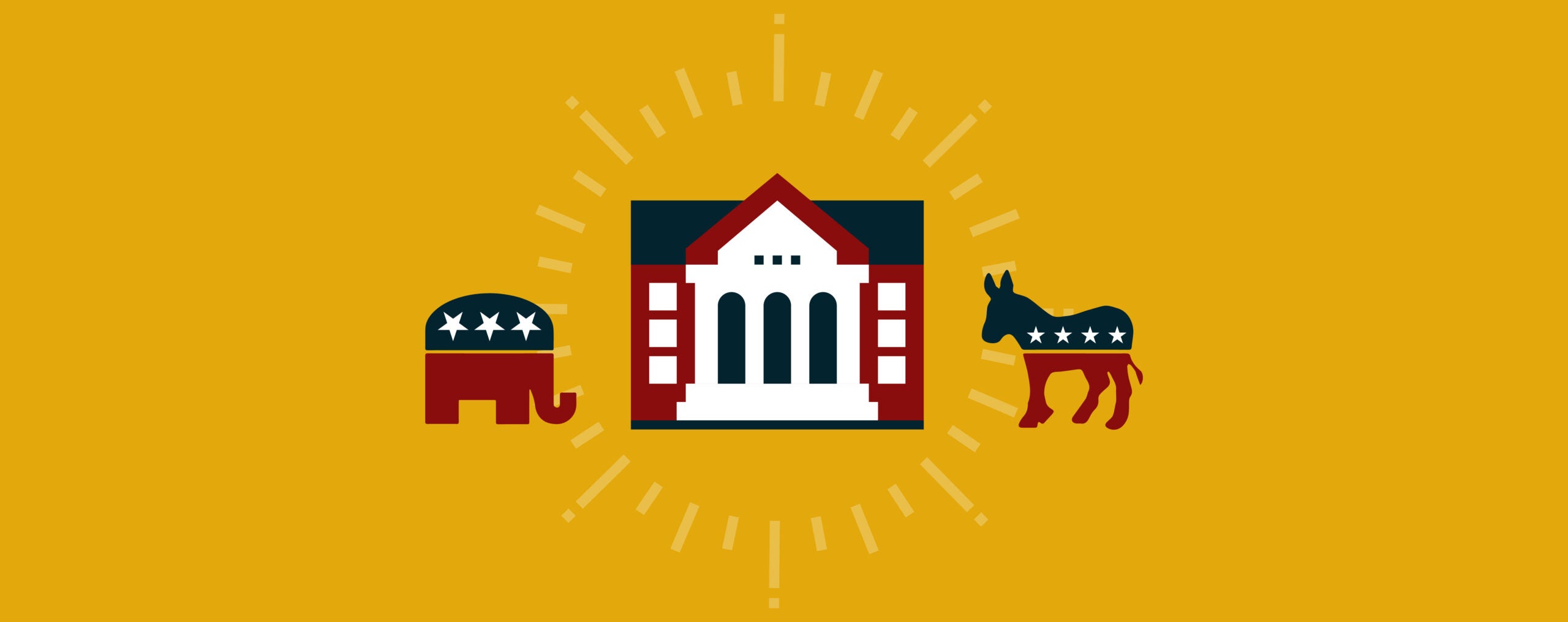 Jun 30, 2025
Persona
Jun 30, 2025
Persona
Each summer, Carnegie surveys thousands of students and parents to better understand what drives college decision-making. This year’s Summer Research Series is built around responses from more than 3,400 prospective students and parents, offering insights across four key themes: politics and college perceptions, college choice trends, the role of AI in admissions, and personality-driven communication.
Staying apprised of the latest changes in politics in the US this year basically constitutes a full-time job. Results from Carnegie’s May Deadline Survey suggest that prospective students, and even their parents, often have too many other topics on their minds to keep up with politics. When asked about the impact of politics on college choice, responses to our May 2025 survey were almost identical to those from a survey held shortly after the 2024 election.
For the first entry in Carnegie’s Summer Research Series, we analyzed these May 2025 survey responses from more than 3,400 prospective students and parents about politics and college perceptions.
Apathy, or in some cases exhaustion, toward politics meant that less than a third of respondents are paying “a lot” of attention to the Trump Administration’s actions related to higher education.
Furthermore, one-third of the audience had not even heard about the highly publicized interaction between Harvard University and the Trump Administration, in which Harvard released statements rejecting requests made by the president.
Should Politics Play a Role on Campus?
Despite what may appear to be an aversion to politics overall amongst incoming students, many graduating seniors and their parents said it was important for a college to help students understand and navigate important political issues.
A third said it was highly important or absolutely critical, while another third said it was at least somewhat important.
This was more true among liberal respondents, and qualitative feedback suggests that the difference stems from a perception that conservative audiences hold that colleges may guide students the wrong way. There has long been a perceived liberal bias in higher education, even though some studies have investigated and questioned that perception.
Carrying this concept forward, liberal respondents also said it was more important for the president of a college or university to issue statements regarding politics. The correlation between the results of these questions was incredibly high, with very similar breakouts of overall response categories from “not at all important” to “absolutely critical.”
The full report that Carnegie has prepared presents responses across gender, race, student GPA, income, political affiliation, religious beliefs, location, and the type of college a respondent wishes to attend.
This reveals some interesting differences across the two questions. For example, while those respondents who want to attend college, or have their children attend college, at a religious institution were more likely to say political guidance was important for a college, but less likely to say a president should issue statements about politics.
Harvard, Trump, and Reactions to Policy
For those who have been watching the unfolding political drama in the country, reactions are, not surprisingly, strongly related to party affiliation.
For example, on a 6-point scale reflecting the impact Trump’s policies will have on higher education, with 1 being strongly negative and 6 being strongly positive, highly liberal graduating seniors scored a 1.39 (with 77% picking the lowest possible option) and highly conservative graduating seniors scored a 4.74 (with 21% picking the highest possible option).
Parents were slightly more positive about Trump’s impact on the higher ed industry, but as a whole, were still net negative. Moderates, for example, had three-quarters of respondents make selections on the negative side of the scale (1-3).
Conversely, reactions to Harvard’s response to the administration (given to survey respondents to read prior to answering questions related to the passage) were generally positive, even among some conservatives.
Important in our qualitative analysis of responses was a feeling that Harvard was standing up for academic freedom and advocating for students. In the cases where respondents were negative about Harvard’s statement, qualitative inputs suggest the negativity was brought on by a perception that the school was ignoring a presidential order or that both sides needed to find common ground.
How Colleges Can Navigate Politics Moving Forward
It can be easy to jump to conclusions about how politics has to become a central focus in all decisions regarding higher education because of the volatility of political discourse in the country today.
And while it’s important to stay abreast of the perceptions of audiences and what is happening from a legislative perspective, Carnegie’s research suggests that it can’t be the end-all, be-all of our strategies as an industry.
For most respondents, politics isn’t what matters most in picking a college. For some, it might make a big difference, but this highlights why individualized outreach and a better understanding of prospects as nuanced, rather than monolithic groups is key. Increasing the human connection points with students and parents will help raise awareness of political issues when it matters.
That said, colleges shouldn’t and can’t completely shy away from politics. A large part of the idea of a strong higher education experience is exploration, learning, and independence.
Some of that will come in the form of seeing new and different political discourse among fellow students, faculty, and, oftentimes, institutional leadership. A college or university can, however, support the exchange of ideas in a non-partisan way through education on critical thinking and the establishment of forums for thoughtful discussion. Learn more about higher education’s role in a polarized America.
Stay Informed All Summer Long
Want to get each report delivered directly to your inbox as they’re released? Sign up for the Summer Research Series to receive immediate access to the full report on Politics and College Perceptions—and get the remaining three reports as soon as they become available later this summer.
